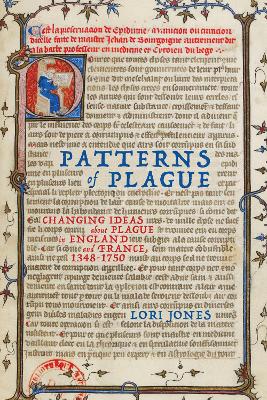McGill-Queen's/Associated Medical Services Studies in the History of Medicine, Health, and Society
1 total work
For centuries, recurrent plague outbreaks took a grim toll on populations across Europe and Asia. While medical interventions and treatments did not change significantly from the fourteenth century to the eighteenth century, understandings of where and how plague originated did.
Through an innovative reading of medical advice literature produced in England and France, Patterns of Plague explores these changing perceptions across four centuries. When plague appeared in the Mediterranean region in 1348, physicians believed the epidemic's timing and spread could be explained logically and the disease could be successfully treated. This confidence resulted in the widespread and long-term circulation of plague tracts, which described the causes and signs of the disease, offered advice for preventing infection, and recommended therapies in a largely consistent style. What, where, and especially who was blamed for plague outbreaks changed considerably, however, as political, religious, economic, intellectual, medical, and even publication circumstances evolved.
Patterns of Plague sheds light on what was consistent about plague thinking and what was idiosyncratic to particular places and times, revealing the many factors that influence how people understand and respond to epidemic disease.
